Have you ever wondered about the role hormones play in weight loss? Understanding how hormones affect our ability to shed those extra pounds can provide valuable insight into our weight loss journey. Hormones, the chemical messengers in our body, have a significant impact on various bodily functions, including metabolism and fat storage. When it comes to weight loss, hormones such as insulin, leptin, and cortisol can significantly influence our body’s ability to burn calories and shed unwanted weight.
Insulin, a hormone produced by the pancreas, plays a crucial role in regulating blood sugar levels. It helps transport glucose from the bloodstream into cells to be used as energy or stored as fat. However, when insulin levels are consistently high, as seen in conditions like insulin resistance or type 2 diabetes, weight loss becomes more challenging. Elevated insulin levels can hinder the breakdown of stored fat, leading to increased fat storage and difficulty in losing weight.
Leptin is another hormone that plays a vital role in controlling hunger and satiety. It is mainly produced by fat cells and functions by signaling the brain when we are full. However, in some cases of obesity, individuals can develop leptin resistance, where their brain doesn’t respond appropriately to the hormone’s signals. This can result in overeating and difficulty in maintaining a healthy weight.
Cortisol, often referred to as the “stress hormone,” is released in response to stress and can have an impact on weight loss. Elevated cortisol levels can lead to increased appetite, particularly for high-calorie and sugary foods. Additionally, chronic stress can contribute to the accumulation of abdominal fat, which is linked to various health risks.
In conclusion, hormones play a significant role in weight loss. Understanding how hormones like insulin, leptin, and cortisol impact our body’s ability to shed weight can help us make informed choices in our weight loss journey. Keep in mind that achieving a healthy weight involves a multifaceted approach, including a balanced diet, regular physical activity, and managing stress levels for optimal hormone regulation. Remember, every body is unique, and consulting with a healthcare professional can provide personalized guidance and support on your weight loss journey.
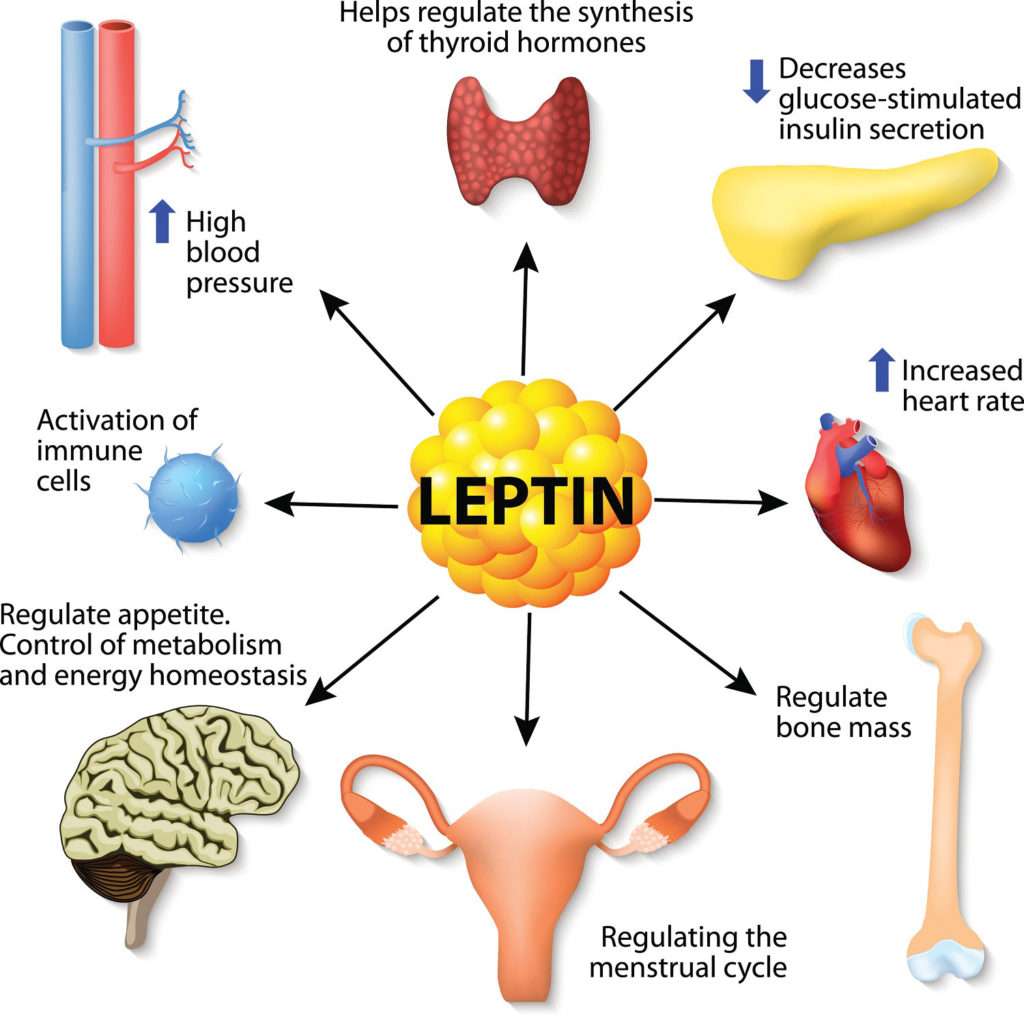
1. Role of Hormones in Weight Loss
When it comes to weight loss, hormones play a crucial role in regulating various processes in our bodies. These chemical messengers are responsible for controlling appetite, metabolism, energy expenditure, and fat storage. Understanding the relationship between hormones and weight loss can provide valuable insights into developing effective strategies for achieving and maintaining a healthy body weight.
1.1 The Relationship Between Hormones and Weight Loss
Hormones act as signaling molecules that communicate messages between different organs and tissues in our body. They regulate key physiological functions, including those involved in weight regulation. Hormones can influence our appetite, metabolism, and fat storage, ultimately impacting our ability to lose or gain weight.
The complex interplay between hormones, especially those involved in appetite regulation and metabolism, directly affects weight loss. Hormonal imbalances can disrupt this delicate balance and hinder weight loss efforts. By understanding the mechanisms through which hormones influence weight loss, we can devise strategies to optimize hormonal balance and enhance our chances of successful weight management.
1.2 Key Hormones Involved in Weight Regulation
Several hormones play vital roles in weight regulation. Let’s explore some of the key hormones and their impact on weight loss:
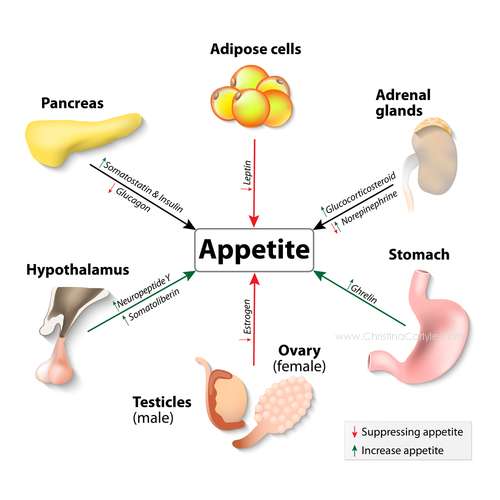
2. Hormonal Factors Influencing Weight Loss
2.1 Insulin and its Impact on Weight Loss
Insulin, produced by the pancreas, is primarily known for its role in blood sugar regulation. However, it also plays a significant role in weight management. Insulin helps transport glucose from the bloodstream to cells for energy production but also promotes fat storage. High levels of insulin, often associated with insulin resistance, can hinder weight loss efforts by promoting fat accumulation.
2.2 Leptin and its Role in Appetite Regulation
Leptin, produced by fat cells, is a hormone that regulates appetite and energy expenditure. It acts as a signaling molecule to inform our brain when we’ve consumed enough food and should stop eating. In individuals with leptin resistance, this signal is not effectively received, leading to overeating and difficulties in weight loss.
2.3 Ghrelin and its Effect on Hunger and Satiety
Ghrelin, known as the “hunger hormone,” is primarily produced in the stomach and stimulates appetite. It increases feelings of hunger and prompts us to seek food. While ghrelin levels naturally rise before meals, an imbalance in ghrelin production can contribute to overeating and weight gain.
2.4 Thyroid Hormones and their Influence on Metabolism
Thyroid hormones, produced by the thyroid gland, play a crucial role in regulating metabolism. They determine how efficiently our bodies convert food into energy. Hypothyroidism, characterized by low levels of thyroid hormones, can slow down metabolism, making weight loss challenging. On the other hand, hyperthyroidism, characterized by high levels of thyroid hormones, can lead to rapid weight loss.
2.5 Cortisol and its Connection to Stress-Induced Weight Gain
Cortisol, often referred to as the “stress hormone,” is released by the adrenal glands in response to stress. While cortisol serves important functions in the body, chronic stress can lead to prolonged elevation of cortisol levels, which may contribute to weight gain. High cortisol levels can increase appetite, particularly for sugary and fatty foods, and also promote fat storage, specifically in the abdominal region.
2.6 Estrogen and Testosterone: Gender Differences in Weight Loss
Estrogen and testosterone, the primary female and male sex hormones, respectively, influence body composition and fat distribution. Women naturally have higher levels of estrogen, which tends to promote fat storage in the hips, thighs, and breasts. Men, on the other hand, have higher levels of testosterone, which promotes muscle growth and helps burn calories more efficiently.
2.7 Growth Hormone and its Impact on Fat Metabolism
Growth hormone, secreted by the pituitary gland, plays a crucial role in regulating body composition. It stimulates the breakdown of stored fat and promotes the synthesis of lean muscle mass. As we age, growth hormone levels decline, which can contribute to age-related weight gain and difficulties in weight loss.
2.8 Serotonin as a Mood Regulator and its Relation to Weight Loss
Serotonin, often referred to as the “feel-good hormone,” is involved in regulating mood and emotions. Low serotonin levels have been associated with increased appetite and cravings for carbohydrates, leading to overeating and weight gain. Maintaining adequate serotonin levels through a balanced diet and lifestyle can positively impact weight loss efforts.
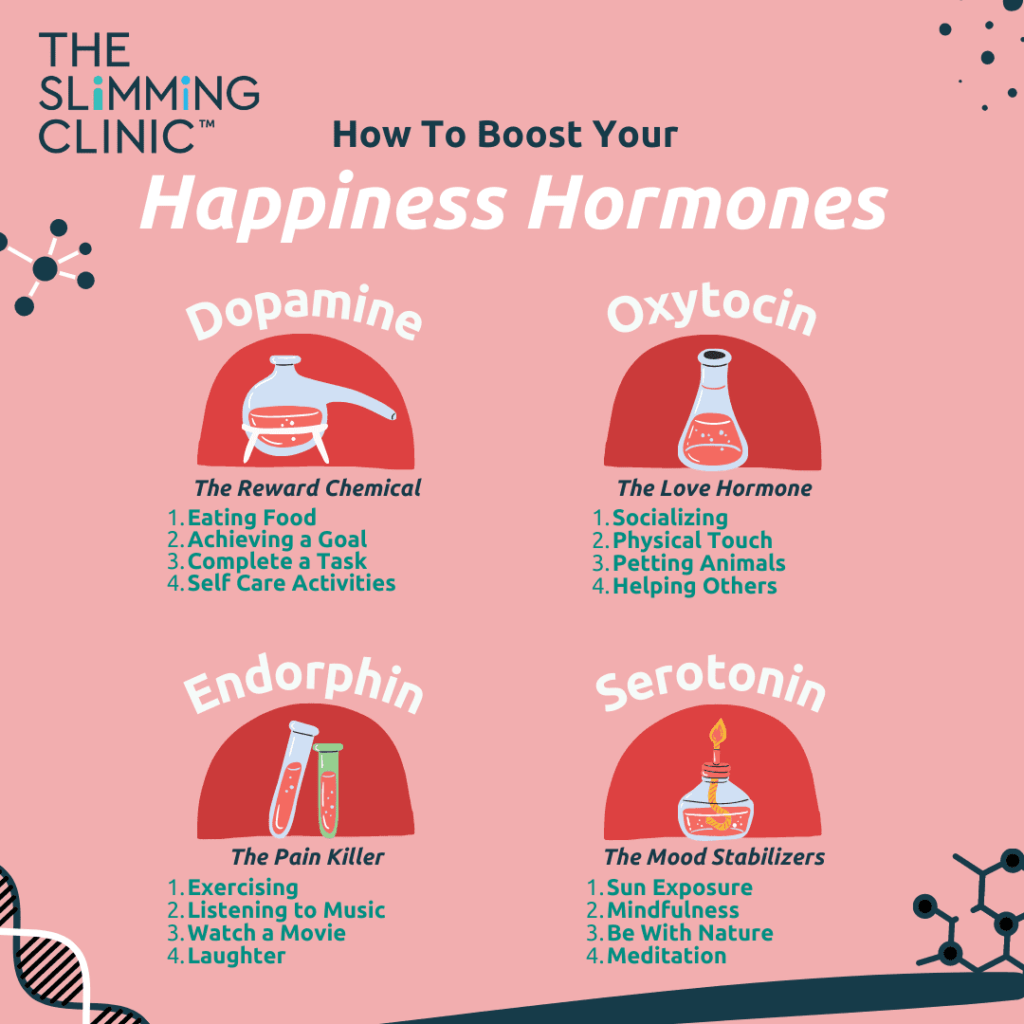
3. Hormonal Imbalances and Weight Loss Challenges
3.1 Hormonal Disorders and Weight Management Difficulties
Certain hormonal disorders can disrupt the delicate balance of hormones involved in weight regulation, making weight loss more challenging. Conditions such as polycystic ovary syndrome (PCOS), hypothyroidism, and Cushing’s syndrome can lead to hormonal imbalances that affect metabolism, appetite, and fat storage.
3.2 Polycystic Ovary Syndrome (PCOS) and Insulin Resistance
PCOS is a hormonal disorder characterized by high levels of androgens (male hormones) and insulin resistance. Insulin resistance can inhibit weight loss by promoting fat storage and increasing appetite. Managing insulin levels through diet, exercise, and medication can help improve weight management in individuals with PCOS.
3.3 Hypothyroidism and its Effect on Weight Gain
Hypothyroidism, an underactive thyroid condition, results in decreased production of thyroid hormones, leading to a sluggish metabolism. This slowed metabolism can contribute to weight gain and difficulties in losing weight. Thyroid hormone replacement therapy, along with lifestyle modifications, can help optimize thyroid function and support weight loss efforts in individuals with hypothyroidism.
3.4 Cushing’s Syndrome and the Role of Cortisol
Cushing’s syndrome is a condition characterized by prolonged exposure to high levels of cortisol in the body. Excess cortisol can promote fat accumulation, particularly in the face, neck, and abdomen. Successfully managing Cushing’s syndrome involves addressing the underlying cause and reducing cortisol levels, often through medication and lifestyle changes.
3.5 Menopause and Hormonal Changes Affecting Weight Loss
During menopause, a woman’s body undergoes hormonal changes, including a decline in estrogen levels. This hormonal shift can contribute to weight gain, particularly in the abdominal area. Hormone replacement therapy, coupled with lifestyle modifications, can help minimize weight gain and support healthy weight management during menopause.
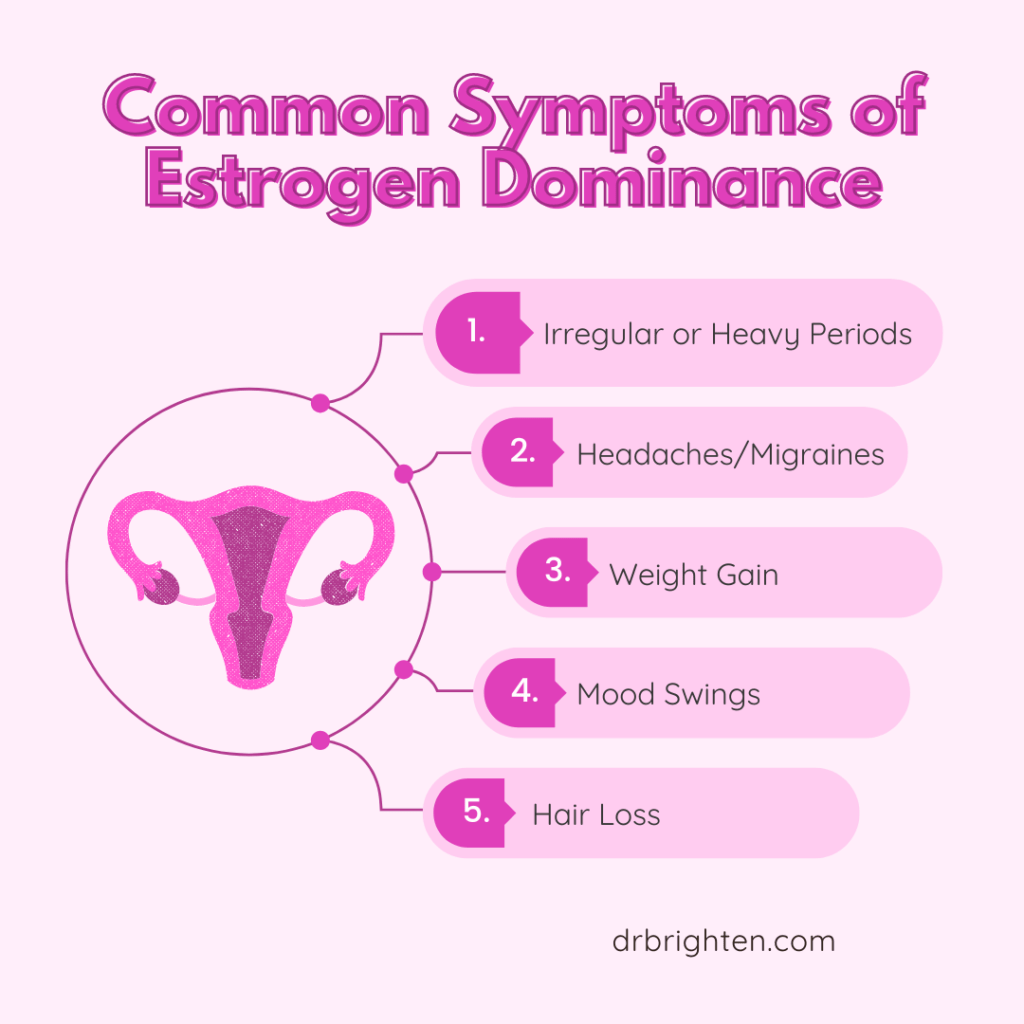
4. Strategies to Optimize Hormonal Balance for Weight Loss
4.1 Dietary Approaches to Regulate Hormones for Weight Loss
Certain dietary approaches can help optimize hormonal balance and support weight loss. Consuming a balanced diet that includes lean proteins, healthy fats, fiber-rich foods, and adequate hydration can positively impact hormone levels and promote weight loss. Avoiding processed foods, excessive sugar, and alcohol can also contribute to hormonal balance.
4.2 Physical Activity and Hormonal Health
Regular physical activity is beneficial for optimizing hormonal balance and promoting weight loss. Aerobic exercises, strength training, and high-intensity interval training have been found to positively impact hormone levels, including insulin, leptin, and ghrelin. Aim for at least 150 minutes of moderate-intensity aerobic activity per week, along with strength-training exercises twice a week.
4.3 Stress Management and Hormonal Balance
Chronic stress can disrupt hormonal balance and sabotage weight loss efforts. Incorporating stress management techniques such as meditation, deep breathing exercises, yoga, or engaging in hobbies and activities you enjoy can help reduce stress levels and promote hormonal balance.
4.4 Sleep and its Impact on Hormones and Weight Loss
Adequate sleep is crucial for hormonal balance and weight management. Lack of sleep can disrupt hormone production and regulation, leading to increased appetite, cravings, and decreased metabolism. Aim for 7-9 hours of quality sleep each night to support optimal hormonal balance and enhance weight loss.
4.5 Medications and Hormonal Therapy for Weight Management
In certain cases, medications or hormonal therapy may be recommended to address hormonal imbalances and facilitate weight loss. These interventions should be prescribed and monitored by healthcare professionals experienced in hormone therapy and weight management.
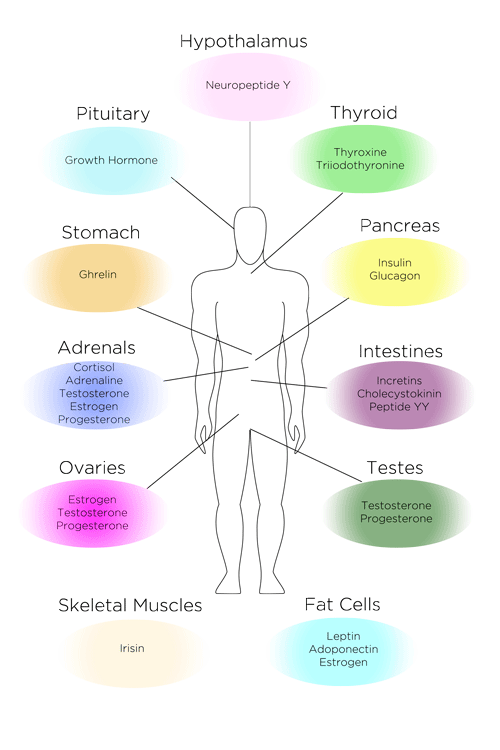
5. Conclusion
Understanding the intricate relationship between hormones and weight loss is essential for successful and sustainable weight management. By recognizing the role hormones play in appetite regulation, metabolism, and fat storage, we can optimize our hormonal balance and make informed lifestyle choices to support weight loss efforts. Remember, it is always advisable to consult with healthcare professionals to determine the best strategies for achieving your weight loss goals while considering individual hormonal factors. With this knowledge, you can navigate your weight loss journey with a comprehensive understanding of how hormones affect your overall success.
